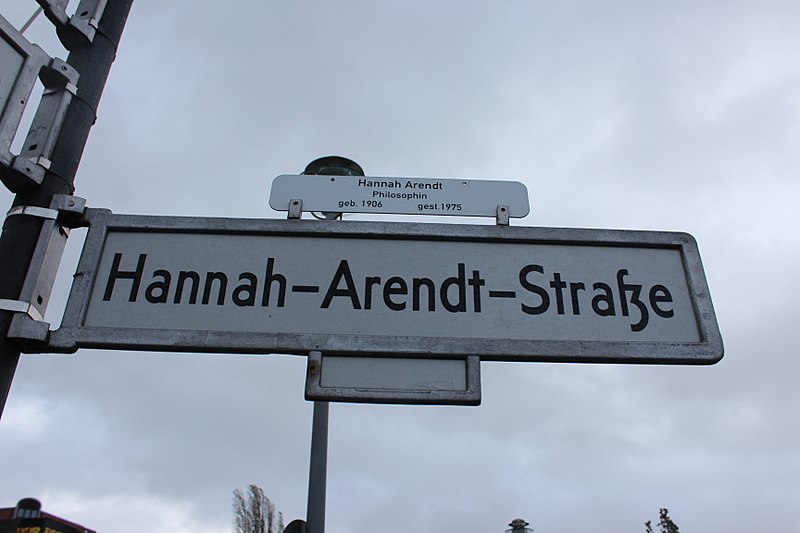In 1963—a year after Adolf Eichmann’s sentencing by an Israeli court—reports on the trial by the German-born Jewish philosopher Hannah Arendt appeared in the New Yorker and were soon published as a book. This “report on the banality of evil,” as the book was subtitled, outraged many Jews, including many of her erstwhile friends and admirers, on account of her manifest contempt for the entire preceding, her disgust for the state of Israel, her accusation that a wide array of European Jewish leaders (if not the majority of the victims) were complicit in their own murder, and her bizarre insistence that Eichmann was “not a monster,” or even an anti-Semite, but a mindless, faceless bureaucrat. While extensive evidence has been brought to light that Arendt was wrong both in her claims of Jewish passivity and her evaluation of Eichmann as the head of the SS’s Jewish section, her book remains widely read and admired. Ruth Wisse comments on its enduring legacy:
When Arendt volunteered to report on the Eichmann trial, it was presumed that she was doing so in her role as a Jew. . . . But Arendt actually traveled to Jerusalem for a deeper purpose—to reclaim Eichmann for German philosophy. She did not exonerate Nazism and in fact excoriated the postwar Adenauer government for not doing enough to punish known Nazi killers, but she rehabilitated the German mind and demonstrated how that could be done by going—not beyond, but around, good and evil. She came to erase Judaism philosophically, to complicate its search for moral clarity, and to unseat a conviction [that, in Saul Bellow’s words], “everybody . . . knows what murder is.”
Arendt was to remain the heroine of postmodernists, deconstructionists, feminists, relativists, and internationalist ideologues who deny the stability of Truth. Not coincidentally, many of them have also disputed the rights of the sovereign Jewish people to its national homeland. Indeed, as anti-Zionism cemented the coalition of leftists, Arabs, and dissident minorities, Arendt herself was conscripted, sometimes unfairly and in ways she might have protested, as an ally in their destabilizing cause. They were enchanted by her “perversity” and were undeterred in their enthusiasm by subsequent revelations, like those of the historian Bernard Wasserstein, who documented Arendt’s scholarly reliance on anti-Semitic sources in her study of totalitarianism, or of revelations about her resumed friendship with Martin Heidegger despite his Nazi associations.
At the same time, however, the Arendt report on the Eichmann trial became one of the catalysts for something no one could have predicted—an intellectual movement that came to be known as neoconservatism. A cohort of writers and thinkers, many of them Jews from immigrant families who had turned to leftism as naturally as calves to their mother’s teats, but who had slowly moved away from the Marxism of their youth during the Stalin years and World War II, now spotted corruption and dishonesty and something antithetical to them in some of their very models of the intellectual life.
They and their Gentile colleagues had constituted the only European-style intelligentsia to flourish in America. Most of them were only one generation removed from Europe, after all, so what could be more natural than for them to serve as the conduit of European intelligence to America? Arendt’s ingenious twist of the Eichmann trial showed them how Jewish and American they actually were—and how morally clear they aspired to be.


























